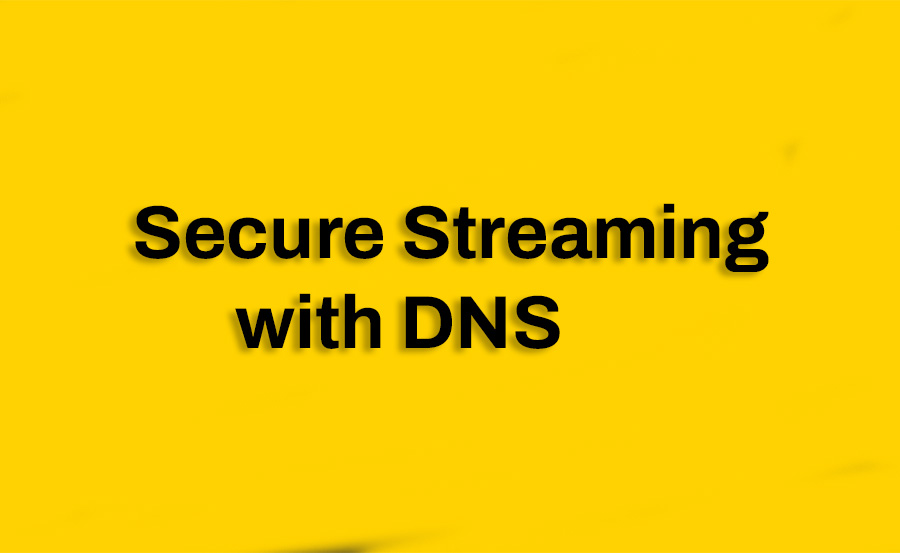Streaming IPTV (Internet Protocol Television) offers convenience and access to a wide range of content, but it also raises concerns about online privacy and security. DNS (Domain Name System) plays a critical role in safeguarding your data while you stream. By using the right DNS configurations and providers, you can enhance your privacy, avoid tracking, and secure your connection.
This guide explores how DNS works, the privacy risks associated with IPTV streaming, and how to use DNS effectively to protect your online activity. Buy 1 year IPTV Subscription
What is DNS and Why Does It Matter for IPTV Privacy?
DNS is the system that translates human-readable domain names (like example.com) into IP addresses that computers use to connect. Every time you access an IPTV service, your device queries a DNS server to locate the correct streaming server.
Privacy Concerns in DNS for IPTV
- Data Logging: Default ISP DNS servers often log your browsing and streaming activity, creating a privacy risk.
- Tracking: DNS queries can reveal your IPTV usage patterns, which can be used for targeted ads or surveillance.
- ISP Throttling: ISPs can monitor DNS traffic to throttle IPTV services.
- Man-in-the-Middle Attacks: Unsecured DNS queries can be intercepted by attackers, exposing your streaming data.
Using a privacy-focused DNS service can mitigate these risks and ensure a more secure streaming experience.
Benefits of Using Privacy-Focused DNS for IPTV
- No Logging of Data: Many third-party DNS providers offer strict no-logging policies, ensuring your streaming history isn’t stored or shared.
- Encryption of DNS Queries: Features like DNS Over HTTPS (DoH) and DNS Over TLS (DoT) encrypt DNS traffic, protecting it from interception.
- Bypass ISP Tracking: Switching to a third-party DNS helps avoid ISP-level tracking and throttling.
- Enhanced Security: Certain DNS providers block malicious domains, protecting your IPTV device from cyber threats.
- Access to Geo-Restricted Content: Smart DNS services allow you to bypass regional restrictions, enabling a broader range of IPTV content.
Top Privacy-Focused DNS Providers for IPTV

- Cloudflare DNS (
1.1.1.1)- Features: No-logging policy, DNS Over HTTPS (DoH), and DNS Over TLS (DoT).
- Benefits for IPTV: Fast and secure DNS resolution with enhanced privacy.
- Best For: Users seeking simplicity and speed.
- Quad9 DNS (
9.9.9.9)- Features: Malware and phishing protection, no-logging policy.
- Benefits for IPTV: Protects against accessing malicious IPTV apps or servers.
- Best For: Security-conscious users.
- Google Public DNS (
8.8.8.8)- Features: Reliable and fast, with limited logging for technical purposes.
- Benefits for IPTV: Stable streaming with minimal buffering.
- Best For: Users prioritizing performance over complete anonymity.
- NextDNS
- Features: Customizable settings, DoH support, and advanced tracking protection.
- Benefits for IPTV: Blocks trackers and ads on IPTV apps.
- Best For: Tech-savvy users who want granular control over privacy.
- Smart DNS Services
- Examples: Unlocator, OverPlay, or Smart DNS Proxy.
- Benefits for IPTV: Designed specifically to unblock geo-restricted IPTV content.
- Best For: Users who need access to international IPTV channels.
How to Set Up a Privacy-Focused DNS for IPTV
1. On Your Router
Configuring DNS on your router ensures all connected devices benefit from privacy protections.
- Log in to your router’s admin panel (usually
192.168.1.1or192.168.0.1). - Go to DNS Settings under the network configuration section.
- Replace the ISP-provided DNS with your chosen provider’s settings (e.g.,
1.1.1.1for Cloudflare). - Save the changes and restart your router.
2. On Your Streaming Device
For Smart TVs, Firestick, or Android boxes:
- Go to Network Settings and select your active Wi-Fi connection.
- Choose Advanced Settings and manually input the DNS server addresses.
- Save and test by streaming IPTV content.
3. Using DNS Over HTTPS (DoH)
For advanced users, enable DoH on browsers or devices that support it to encrypt DNS queries.
- For Google Chrome: Enable DoH in browser settings under “Security.”
- For Windows 11: Go to Network & Internet > Advanced Network Settings and enable DoH.
Testing Your Privacy-Enhanced DNS
After setting up a privacy-focused DNS, verify its effectiveness:
- DNS Leak Test: Use online tools like DNS Leak Test to ensure your ISP’s DNS is no longer in use.
- Streaming Test: Check if IPTV buffering has reduced and if geo-restricted channels are accessible.
- Ping Test: Measure DNS response times using tools like Namebench or DNS Benchmark.
Best Practices for Privacy When Streaming IPTV
- Combine DNS with a VPN: For maximum privacy, use a VPN alongside a private DNS. This encrypts all internet traffic, hiding your IP address and DNS queries from ISPs.
- Regularly Update DNS Settings: Periodically check for updates from your DNS provider to maintain optimal performance and security.
- Avoid Free IPTV Services: Free IPTV platforms often come with privacy risks, including tracking and malware. Use reliable, paid IPTV services instead.
- Monitor Device Security: Install updates for your IPTV device to patch vulnerabilities that could compromise privacy.
Conclusion
Using a privacy-focused DNS is a simple yet effective way to protect your data while streaming IPTV. Providers like Cloudflare, Quad9, and NextDNS offer enhanced privacy, security, and performance, ensuring a seamless and secure IPTV experience. For even greater protection, consider pairing your DNS setup with a VPN to encrypt all online activity.
How to Access IPTV Channels for Specific Interests

